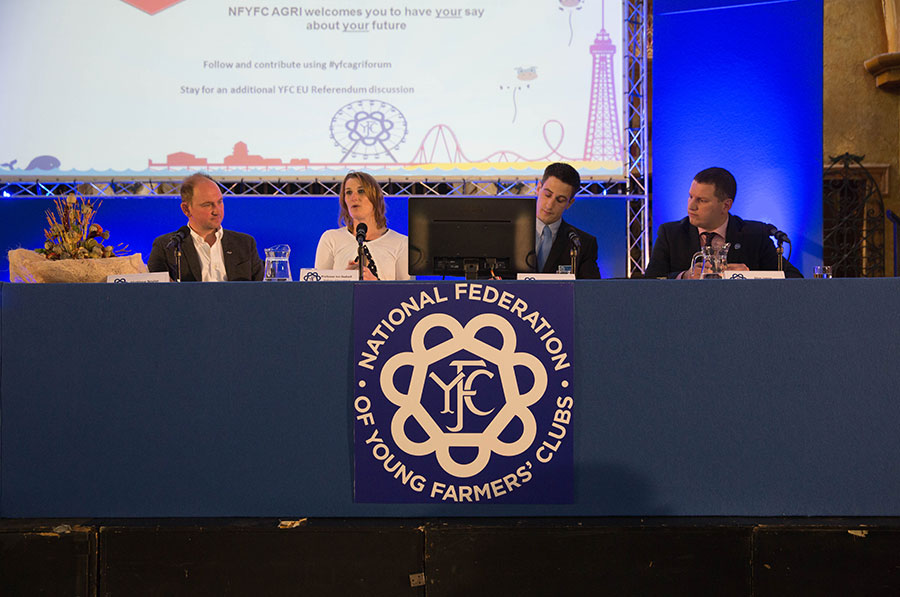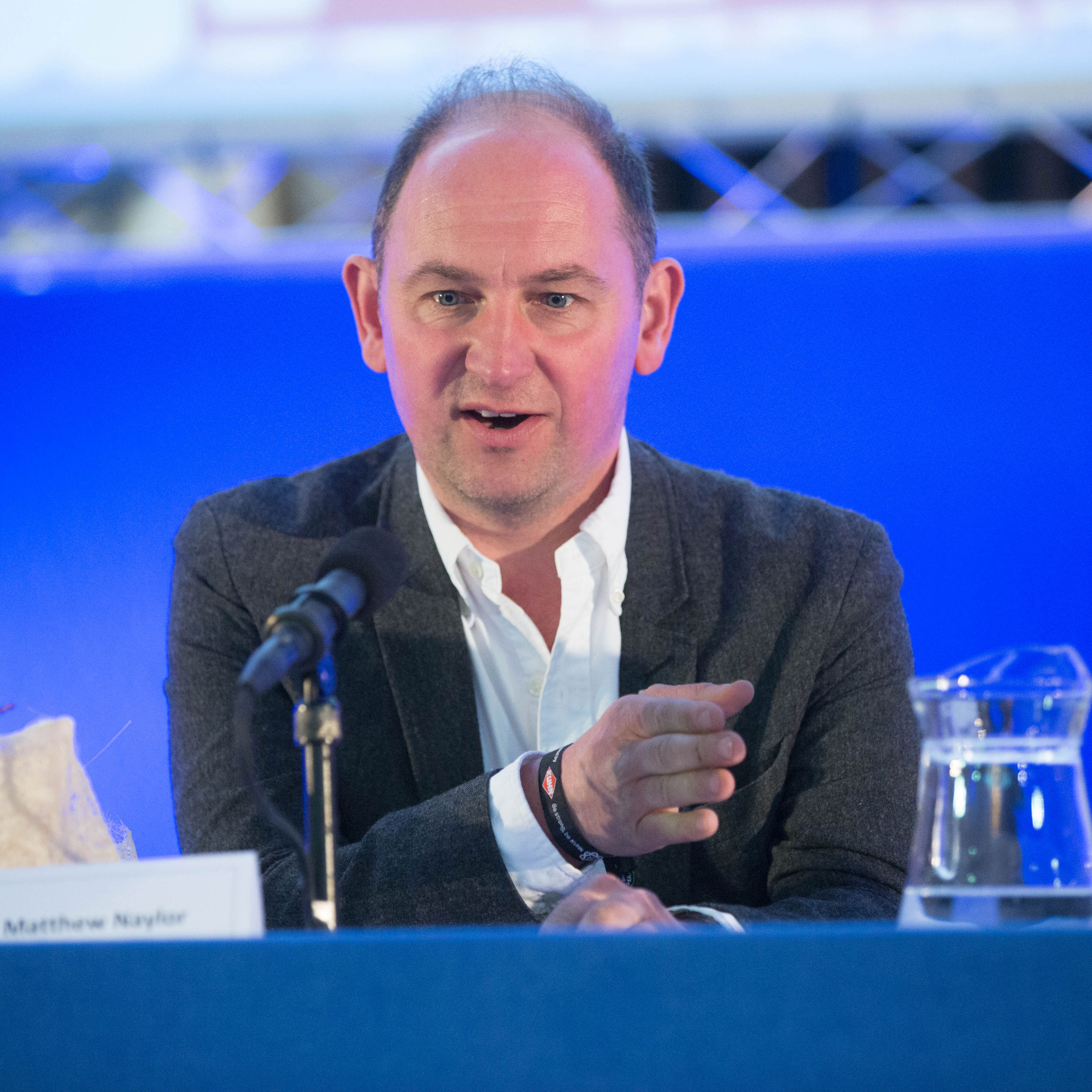Creativity, consumers and CAP – advice from the Young Farmers AGM

Matthew Naylor, Jan Godsell Sam Dilcock and Alan Jagoe © Tim Scrivener
The theme of this year’s Agri Forum was Living for today – striving for tomorrow, advising farmers how to seize a better future.
The topics raised by National Federation of Young Farmers’ Clubs’ members were the future of the CAP, the national living wage, antibiotics use in the livestock sector, connecting with consumers and selecting the right market for farm produce.
The panel
Matthew Naylor
 Matthew is the managing director of Naylor Flowers, a Lincolnshire-based business which grows more than 40m stems of British flower for supermarket.
Matthew is the managing director of Naylor Flowers, a Lincolnshire-based business which grows more than 40m stems of British flower for supermarket.
Jan Godsell
 Jan is a professor of operations and supply chain strategy at Warwick Manufacturing Group, University of Warwick. Her work focuses on developing sustainable business models through the alignments of product, marketing and supply chains strategy.
Jan is a professor of operations and supply chain strategy at Warwick Manufacturing Group, University of Warwick. Her work focuses on developing sustainable business models through the alignments of product, marketing and supply chains strategy.
Alan Jagoe
 Alan is a dairy and arable farmer from County Cork in Ireland. He is the current president of the European Council of Young Farmers (CEJA).
Alan is a dairy and arable farmer from County Cork in Ireland. He is the current president of the European Council of Young Farmers (CEJA).
Here are some of the key pieces of advice that the panel gave to the room:
1. Add value
“You have to be honest about what you’ve got and find a way to add value.
“Perhaps you’ve got to be more vertically integrated to take control of the channel to market and keep margin,” said Jan.
She used the example of farmers supplying Gloucestershire services in her local area, which gives producers the opportunity to sell premium products at a higher margin.
2. Pick your market
Find a blend of direct contracts and the commodity market and don’t put all of your eggs in one basket.
“You have to spread your risk because you don’t know what market will fail at what time,” Alan said.
Fellow panellist Jan pointed out it can vary depending on the business because if you are a large dairy farmer on the doorstep of a major milk processor then it might pay to supply them only.
3. Don’t rely on government
“Solutions lie with customers not with government.
“I would urge you to get money from customers not from the government,” Matthew said when asked about the future of the CAP. He advised “the key to customer relationships is to all the time put yourself in their shoes”.
See also: Young farmers back Brexit
4. Focus on consumers
“We have to open our farms – bring consumers on to them,” said Alan.
“Show them how you feed the cows, show them that cows eat grass, show them how you milk the cows.”
He said that “consumers want food and they want it cheap” so farmers need to reconnect consumers with where their food comes from to have a longer effect on buying habits.
5. Understand people
“If you can find a deal where you get what want and the other person gets what they want, that’ll be the most successful working relationship you’ll enter into,” Matthew claimed. “You need to like people and understand people.”
See also: See all the news and pictures from this year’s Young Farmers conference
6. Be creative and take advice
“You have to think creatively about different ways of forming a venture or partnership,” Jan advised those who want to get into farming.
“Consider what you’re offering and don’t be scared of debt,” she said. Alan added that those starting up should “have a business plan, talk to the bank, talk to advisers, talk to as many people as possible. Know your skillset because there is no point having a great business plan if you’re not the person to drive it forward.”
What one change would most help the industry?
When asked what change the panellists would make to instantly help the industry, Alan, said the two key factors he thinks need to change simultaneously are access to land and credit.
He believes farmers’ need more access to land at affordable rates or agreements and, once they have the land, they need credit at an affordable rate to invest in the machinery, stock or staff.
He believes that the European Investment Bank need to put a stamp on interest rates and work with young farmers in order to understand their needs.
The CAP would be the one thing Matthew would change, transferring all payments for Pillar 1 (farmer support payments based on acreage) to Pillar 2 (modulated payments focused on rural development) so that the money was going to farmers who were doing something good with their land rather than just big landowners.
“As it stands, CAP doesn’t guarantee any food production whatsoever. It just gives money to people in the countryside regardless of what they do. It’s absurd.”
Jan would start with the supermarkets. “I’d ban all promotions and try to create some stability of demand.” She would make retailers, processers and farmers work together more collaboratively so that “stable demand at the front end meant a stable price”.
